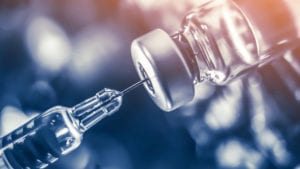As even the developed world struggles with the task of COVID-19 vaccination procurement and roll-out, cash-strapped developing countries, including most countries in Africa, risk lagging behind and suffering major blows to their economic recovery.
By Professor Cyril Nhlanhla Mbatha* While Reutersreports that the African Union will receive vaccine doses at the discounted rate of $3-10, experts remain concerned that many developing countries will struggle to purchase, distribute and administer the vaccine doses. South Africa lacks the funds and capacity to behave like the developed world, and the costs of vaccine acquisition and roll-out will expectedly be a major burden to our fiscus. South Africa further has both moral and practical obligations to its neighbouring countries. At a moral level, South Africa, with its leadership roles in the African Union and the recent launch of the Africa Free Trade Agreement, cannot be seen to be hoarding vaccines the same way some developed countries have done. At a practical level, millions of SADC citizens enter and exit South Africa’s borders every year, and weak vaccination programmes in our neighboring countries and constant virus mutations across the continent would threaten any progress we are able to make. South Africa has limited sources to fund the required doses for our own population, and even less resources to roll them out rapidly. While the government has reported costs of R2.4 billion using varying proportions of different vaccines, our estimations using the least expensive AstraZeneca vaccine at R76 per patient indicate vaccination costs of R 4.2 billion to cover 10% of the population (about 5.5 million people), and R1,13 billion for the most vulnerable 1,5 million. The government estimates are reported to exclude Solidarity Fund donations and recoupment of fees from medical aids. It remains unclear whether the government estimated costs account for a single dosage or the recommended double dosage.The sources of funds for the vaccine plus the roll-out could among possible sources include increased taxes, borrowing, private sector and individual donations. As the Solidarity Fund has already been used to pay the Covax deposit, these methods are required to get the funds to vaccinate as soon as possible. Increased taxation and borrowing will raise the country’s fiscal policy and political challenges, including tax evasion, avoidance, revolt or pushing the fiscus over the cliff.
The South African government must recognise where it lacks capacity to carry out its obligations and continue to solicit private sector contributions and co-operation in these efforts. These should certainly include businesses, especially those that experienced financial growth during the pandemic and also those with visible footprints across the continent, including ITC and telecommunications corporations. The private sector will need to step up to the plate, as seen recently when mobile network MTN announced a donation of US$25 million to support the African Union’s COVID-19 vaccination programme. These public private partnerships, both at continental and national scale, can help accelerate the slow process of getting back to economic levels experienced prior to the pandemic.While government is the channel to acquire vaccines, the private sector should participate in funding some of the costs of acquiring the doses as well as the activities and additional costs of distribution and administering the vaccine doses to patients. A strong proposition can be made that the private sector’s contribution to funding the acquisition could include allocating 25% of the doses to private businesses, at double or triple the acquisition prices. This would ensure acquisition for a cross-subsidy for the public sector burden. The private sector acquisition of the 25% dose might also be used to contribute to the faster distribution and administration of that portion to employees most at risk. Medical schemes should be called on to cross-subsidise the purchasing, monitored distribution and administration of the vaccines. It is clear that the public health system is under severe strain and the additional burden of administering the vaccines would only break the system. We cannot afford delays in the vaccination process, while the virus mutates and the effectiveness of the vaccines become more questionable. These developments would nullify initial investments in vaccines. This is further motivation for some proportionate and monitored private sector partnership to ensure that the vaccine is rolled out both equitably and rapidly. Vaccinating as soon as possible, even with its associated fiscal challenge, is the best option for the economy. An overall GDP decline of R275 billion was estimated for 2020. The expected GDP growth for 2021 reflects only the rebound of the economy, and would still not take the country back to GDP levels experienced before the pandemic. And these costs still don’t account for human life costs and social suffering. Going by the 2020 data of recorded Covid-19 deaths, without vaccination, we should expect at least 40 000 more deaths in 2021. It is morally impossible to estimate the monetary costs from this loss of human life. *Prof Cyril Nhlanhla Mbatha is the director of the Institute of Social and Economic Research (ISER) at Rhodes University, a dynamic African hub of pioneering research that is opening gateways for community-rooted knowledge to be incorporated in policy and practice aimed at improving the natural environment and quality of human life






